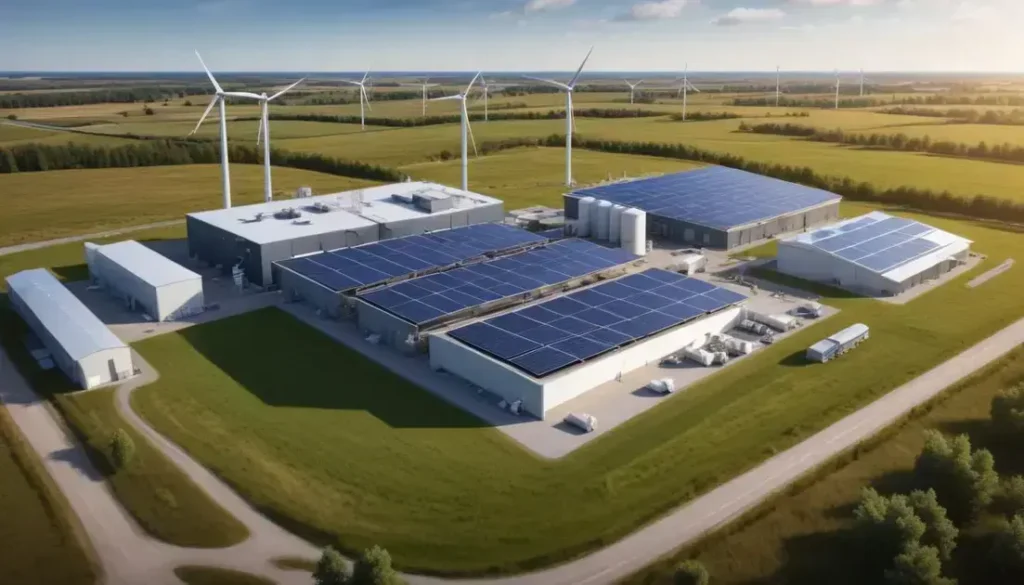Tesla’s grid-scale battery deal in Shanghai provides significant opportunities for Indian businesses by enhancing energy storage capabilities and promoting sustainable practices in the renewable energy sector.
The recent **energy storage** project in China, marked by Tesla’s substantial investment, opens new avenues for Indian businesses looking to expand in the green technology sector. How do these developments impact the regional market?
Tesla’s grid-scale battery deal in Shanghai
Tesla’s groundbreaking grid-scale battery deal in Shanghai marks a new era for energy storage solutions. This initiative promises to significantly enhance the capacity for renewable energy integration into the grid. By improving energy efficiency, Tesla aims to address the growing demands for sustainable energy sources.
With investments reaching $557 million, this project not only solidifies Tesla’s position in the global market but also sets a benchmark for innovation in energy technology. The scale of production planned for these batteries will play a crucial role in stabilising energy supplies during peak load times.
Furthermore, this substantial investment opens avenues for collaboration with Indian firms looking to innovate and expand in the energy sector. By leveraging Tesla’s advancements, Indian companies can enhance their operations in battery storage and renewable energy applications, cultivating a more resilient energy infrastructure.
This deal is expected to catalyse further research and development in energy storage technologies, fostering a vibrant ecosystem that encourages emerging startups and established players alike to participate in the evolving energy landscape.
Economic and environmental impacts for Indian businesses
The economic impacts of Tesla’s battery deal in Shanghai present significant opportunities for Indian businesses. As the demand for energy storage solutions increases, companies can leverage this momentum to enhance their market presence. The import of technology and expertise from Tesla will enable Indian firms to innovate and compete on a global scale.
Moreover, this development promotes a shift towards sustainable practices. By adopting advanced battery technologies, Indian businesses can reduce their carbon footprints, thereby contributing positively to the environment. This is crucial as companies increasingly face scrutiny regarding their environmental impact.
The collaboration between Tesla and Indian firms can drive local job creation, fostering a skilled workforce adept in cutting-edge technology. This economic boost aligns with India’s vision of becoming a leader in the renewable energy sector, supporting the government’s initiatives towards a greener economy.
Additionally, the positive environmental effects of transitioning to renewable energy sources cannot be overstated. Implementing effective energy storage solutions aids in balancing supply and demand, ultimately leading to more efficient energy use.
In Conclusion
The collaboration between Tesla and Indian businesses presents a unique opportunity to reshape the energy landscape. By embracing advanced battery technologies, Indian firms can significantly improve their economic prospects and contribute to environmental sustainability.
This partnership not only fosters innovation but also supports job creation in the renewable energy sector. As companies adapt and innovate, they will be better positioned to thrive in a competitive global market.
Ultimately, the transition to sustainable energy solutions is essential for a brighter and greener future, making it imperative for Indian businesses to take advantage of these developments.
Frequently Asked Questions
How will Tesla’s battery deal impact Indian businesses?
Tesla’s battery deal provides Indian businesses with access to advanced technologies, enhancing their capabilities in energy storage and making them more competitive.
What are the environmental benefits of this partnership?
The partnership promotes sustainable practices, helping Indian firms reduce their carbon footprints while transitioning to renewable energy sources.
Will there be job creation in India due to this development?
Yes, this collaboration is expected to create jobs in the energy sector, fostering a skilled workforce in renewable energy technologies.
How can Indian firms adapt to these technological changes?
Indian firms can invest in training and development, focusing on building expertise in energy storage and renewable technologies to stay ahead.
What is the role of government initiatives in this context?
Government initiatives play a crucial role in supporting the transition to renewable energy by providing incentives and creating a favorable policy environment.
How does energy storage impact overall energy efficiency?
Energy storage helps balance supply and demand, leading to more efficient energy use and a more resilient energy grid.


